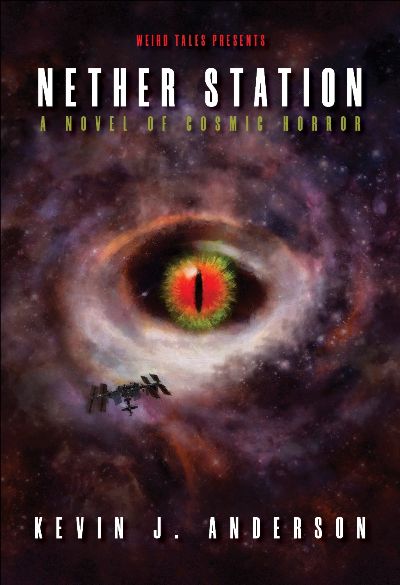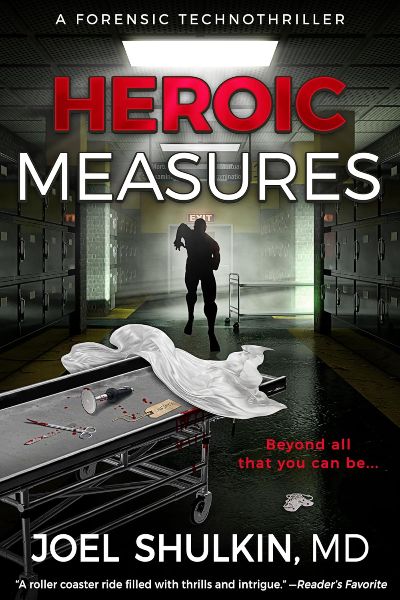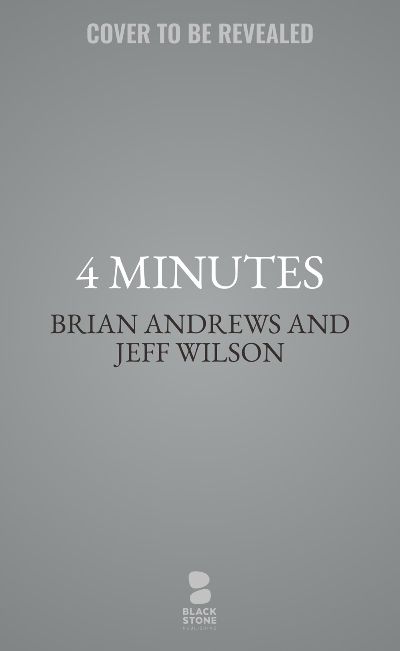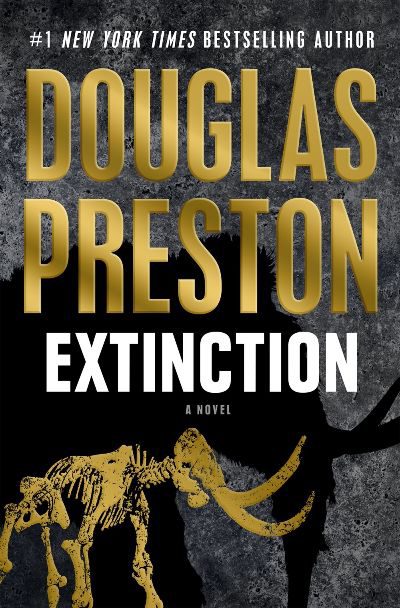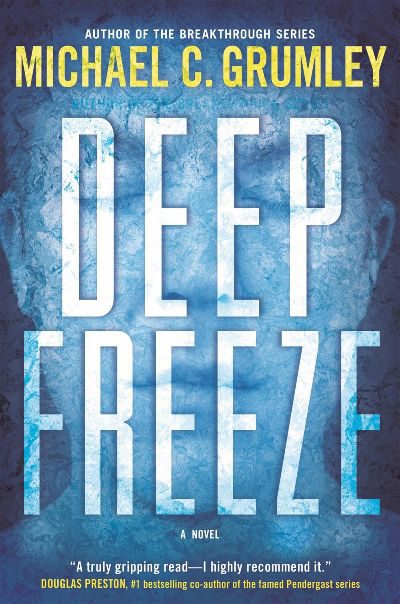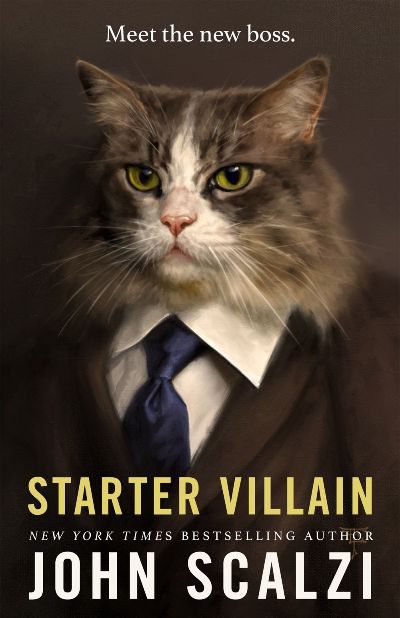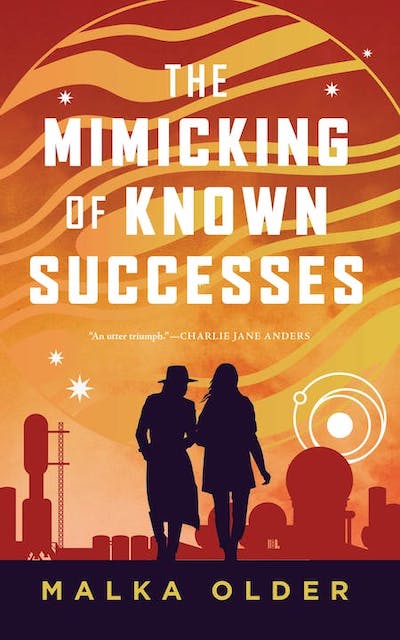Space exploration and the curious pursuit of knowledge might sometimes be the wrong decisions. A wormhole has been discovered in the vast end of our solar system, and after numerous probes only add to the questions, a team of astronauts heads to the region. They take turns monitoring the systems for six months while the others slumber in cryogenic sleep. The wormhole appears stable, and when a probe starts transmitting a signal over four years later from our nearest star system, the hope is to make this a way station for travel between the two galaxies. The six-year journey to the portal is tense and chaotic for the group, but the problems are merely beginning once they arrive, and what they discover will change everything they understand. For Dr. Cammie Skoura, a scientific genius who lacks an understanding of social norms, this mission must succeed, no matter the cost. Anderson has created a compelling story with a great cast of characters. The tension builds as the truth emerges, and as the team tries to cope with the ramifications of its discovery, things become more terrifying. Both thriller and SF fans will want to go on this journey.
Science Fiction
Colonel Stephen Englehart is a great medical examiner, which in the bureaucratic backwardness of the U.S. Army means he’ll be promoted any day now to paper pusher. No, thank you. Besides, he has an ambivalent attitude toward the whole organization, given that his soldier father was mostly absent and the “uncle” who took over—his father’s fellow soldier who is now one of Stephen’s superiors—is chilly at best. Retirement is beckoning, but his plans are exploded by five corpses arriving at his base. Don’t autopsy them, comes the order. Just hold them until their storm-damaged plane is repaired. That’s weird enough, but then one of the dead seems to have been untouched by the grenade he was supposed to have been killed by, and a medical examiner’s worst nightmare comes true: the man opens his eyes. At the same time, Stephen’s sister, Major Sharon Englehart, is arriving in Germany, where Stephen is based, and the two will try to steal some time to meet…but she never arrives at her post. The secrets, lies, and fearsome technology behind this fast-moving, exciting novel will keep readers turning the pages as they also enjoy the sibling loyalty and Stephen’s sidestepping of military rules—including his affair with a subordinate. This is a great step into military and technothrillers for fans of Patricia Cornwell and other forensic crime authors, and an equally perfect introduction to more relationship-based novels for military fiction buffs.
Special Operations Chief Tyler Brooks gets a chance to lead a secret team of operatives in this tense and mind-blowing thriller. The Task Force Omega squad has access to a top-secret device that can move anyone on the team up to 28 days in the future for four minutes, and then they are returned. They cannot change anything they see but can gather intel to research once they return, hopefully stopping the incident from happening. Brooks does not know that a particular op that came together before his recruitment has a soldier with similar skills who is seeking vengeance and who wants Brooks dead. Events swerve drastically when the team jumps into the future and discovers a nuclear-decimated landscape. Can Brooks lead his team to find answers, even with a hidden target on his back? Andrews and Wilson are the best in the business at telling stories involving military operations while emphasizing the human side of warfare. They take a sci-fi concept and make it realistic and believable. 4 Minutes is arguably the best book they have written.
Whenever you love a book—that would be me and the first book in this series, The Mimicking of Known Successes—you can only approach the next installation with some trepidation. So I’m happy to report that this book more than lives up to my expectations—although it’s important to read the books in order. It’s set against a rather simple mystery: 17 students and staff members are missing from Valdegeld, the Oxbridge-like university where Pleiti is a professor. This is a space opera and a detective story, a romance and a cozy mystery, with the investigation led by Mossa, Pleiti’s lover and a detective, who in this story explicitly asks Pleiti for her help. Set in part on Giant, the huge rings that surround Jupiter and where many humans have settled, this narrative includes a lengthy trip to far-off Io, one of Jupiter’s moons. The pleasures in this book are many. There’s the growing relationship between the two women, especially Pleiti’s worries that Mossa may not have feelings as strong as she does. There’s the brilliant world-building, with special attention to the far-off settlements the two women seek out, revealing the fascinating means of travel and the many smaller, human communities scattered across the vast planet. Finally, there are ruminations from Pleiti about the aim of returning to Earth, her research area, and the hints of political dissent. Brilliant on all counts.
Erebus is a resort for the extremely wealthy, and those who visit the sprawling grounds in the heart of the Colorado Rockies get to experience Earth’s distant past. Using cutting-edge technology, scientists have been able to de-extinct mammals like woolly mammoths and plant life from the Pleistocene era. A young couple pays for a camping trip in the sprawling complex and is kidnapped and killed by what appears to be a group of ruthless hunters. Colorado Bureau of Investigation Agent Frances Cash and county sheriff James Colcord lead the investigation. As the mystery creates national headlines, Cash and Colcord meet resistance from both the team at the resort and their own supervisors. What happened to the couple is only the beginning, and the shocking truth will threaten lives and the history books. Preston creates a Michael Crichton level of thought-provoking science and thrilling intrigue while avoiding writing a Jurassic Park clone. Extinction goes beyond the simple question of whether man should play God, and with a terrific cast of characters, Preston has a guaranteed bestseller.
A floating space station, the Imperium, was once a laboratory but has been crafted into a hotel for the extremely wealthy in Pitkin’s thriller. The first group arrives, and the team onboard is ready to show off the unique features of a stay, including a view of Earth and a supervised spacewalk. Chloe, a biophysicist who misses having her work be the focus of the station, assists in making the visitors feel welcome. It doesn’t help that her boyfriend, the CEO of the hotel, can’t make it at the last minute. She quickly learns that something sinister is happening and that some of the staff she thought she could trust are part of a global terrorist group called The Reckoners. While Chloe remains in hiding, the visitors are taken hostage, and the demand is eight billion dollars. With no hope of rescue and no way to communicate with anyone on Earth to send help, Chloe takes matters into her own hands. This mashup of the films Die Hard and Gravity is an action-adventure reader’s dream. The pacing is relentless and claustrophobic, making it impossible to stop turning the pages. Pitkin has written a winner.
A bus ride becomes a nightmare when John Reiff wakes up to see the bus plunge into a freezing river, and he and several others are trapped. But that is not the end for him. He then wakes up in what appears to his confused mind to be a mix of a hospital and a laboratory. The doctors there tell him that he was cryogenically frozen due to the accident conditions, and with the experimental equipment on site, they could revive him. As John gathers his strength, he realizes that the doctors are not as forthcoming with him as they should be. He has secrets of his own, as he begins to have terrifying visions of flames mixed in with the pain from his resurrection. The truth and its ramifications will jeopardize the lives of John and the doctors who brought him back to life. Robin Cook meets Blake Crouch in this intense thriller that will appeal to fans of mysteries that feature paranoid conspiracies and a hint of science fiction. While not a cliffhanger, the ending will still have readers demanding the next book right away.
In his acknowledgements, Rosson calls this “a wild fever dream of a novel,” and he nailed it. Where to start with this feral read? Since it’s a horror/suspense novel, the first gory moment seems apt: when a crime boss’s enforcers threaten a man with a drug addiction who owes a payment and the man asks, “What’re you gonna do? Knock my teeth out?” He then goes on to do the job himself, with his own filthy fingers. The enforcers find a severed hand during their work, one that causes those nearby to feel the need to do tremendous violence, the urge “[slithering] in. It floats on a dark wave.” The gore gets more sophisticated—“make me a necklace from the heads of your children…make me a red veil from their latticed veins”—only adding to the supernatural head-spinning. At the same time, we follow the life…if he or it is alive…of a being called Saint Michael, a secret captive of the U.S. government. Saint Michael can sometimes see visions of future events, especially when periodically “encouraged” by the agonizing process of government agents trimming his wings. In counterpoint to the government actions we meet a musician, Katherine Moriarty, who was very successful in her day but now is agoraphobic, her closed-in life perhaps related to the bizarre goings-on elsewhere in the novel. All converge in a terrifying episode in Portland, Oregon, that will surely be a highlight of the movie that is already being made of this terrific novel. Every word here is crafted to impart just the right level of revulsion, fear, and, at times, wonder. Get ready for awards nods for this work as well as comparisons to the works of Cormac McCarthy and Justin Cronin.
Charlie’s life is nothing special. He makes a pittance taking occasional substitute-teaching gigs and lives with his two cats in his dad’s house, to the detriment of his other siblings. When his uncle passes away, his will stipulates that Charlie oversees the funeral, and then will receive his inheritance. The only people who show up at the service are his uncle’s enemies, and they all go out of their way to ensure the body inside the coffin is dead. After the service, Charlie learns that his inheritance is a lair built inside a dormant volcano, and his uncle was a supervillain. With Charlie becoming the new head of his uncle’s business practices, he will need a crash course on being ruthless and bloodthirsty if he can stay alive long enough. James Bond villainy meets Despicable Me in this hilarious and intense journey into the other side of the battle between good and evil, featuring mostly shady characters mixed with a team that is unlike any seen anywhere before in a thriller. Starter Villain is a blast. Fans of Scalzi will consider it one of his best, and thriller fans who want humor and a different perspective into the world of criminals will treasure it.
It’s hard to pull off a novel that attempts to have equal footing in two genres—never mind three—and typically one of the genres ends up taking on a minor role. Just think of all those unrequited romances lurking in the background of crime novels, sometimes through a whole series. But The Mimicking of Known Successes, a work of speculative fiction, a traditional mystery, and a romance is a walloping success. Earth is no longer a livable planet, and humans have long been settled on a colony located on the far outskirts of Jupiter, itself a gas giant. The worldbuilding here—how can humans survive in such an inhospitable environment?—is both subtle and fascinating. Layer over that a very traditional, academic, British mystery—think Gaudy Night—add a heart-felt romance, and you have one of the most unusual mysteries of the year. Terse and reserved, Investigator Mossa is seeking a man who’s gone missing, she doesn’t buy the notion that he committed suicide. He’s an academic, so the search takes her back to her university and Pleiti, an old girlfriend who’s now a professor researching the possibility of humans returning to Earth. Together they set out to find the missing academic, save themselves from death, and maybe even help rescue Earth from a calamity. Older is the author of the Centenal Cycle Trilogy. This would be a great choice for a book group.

